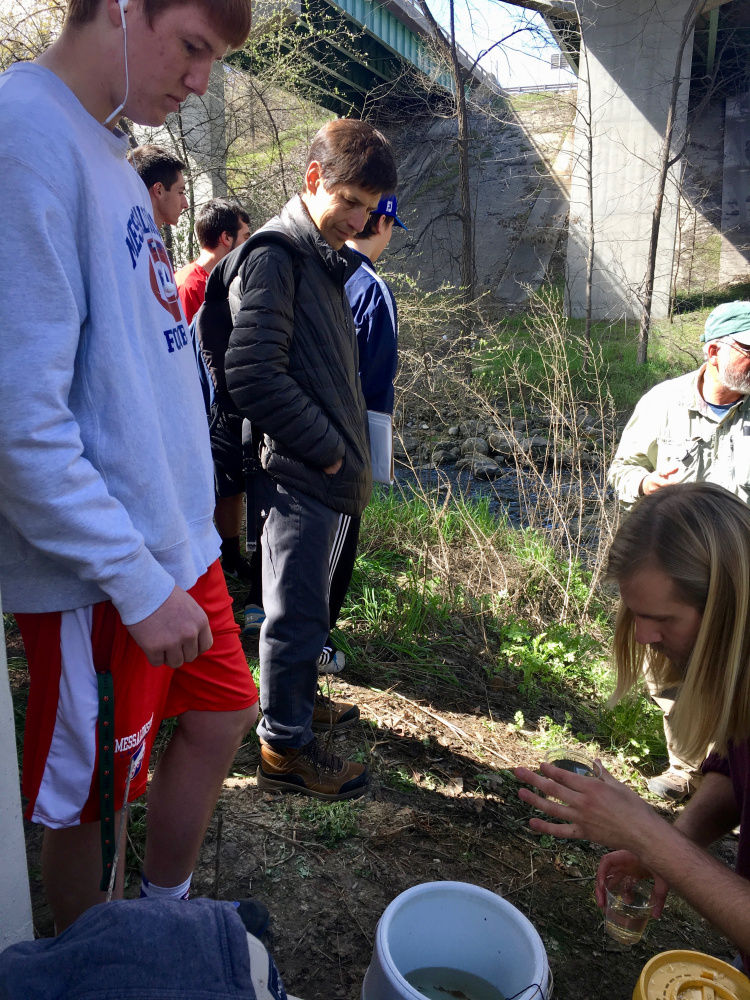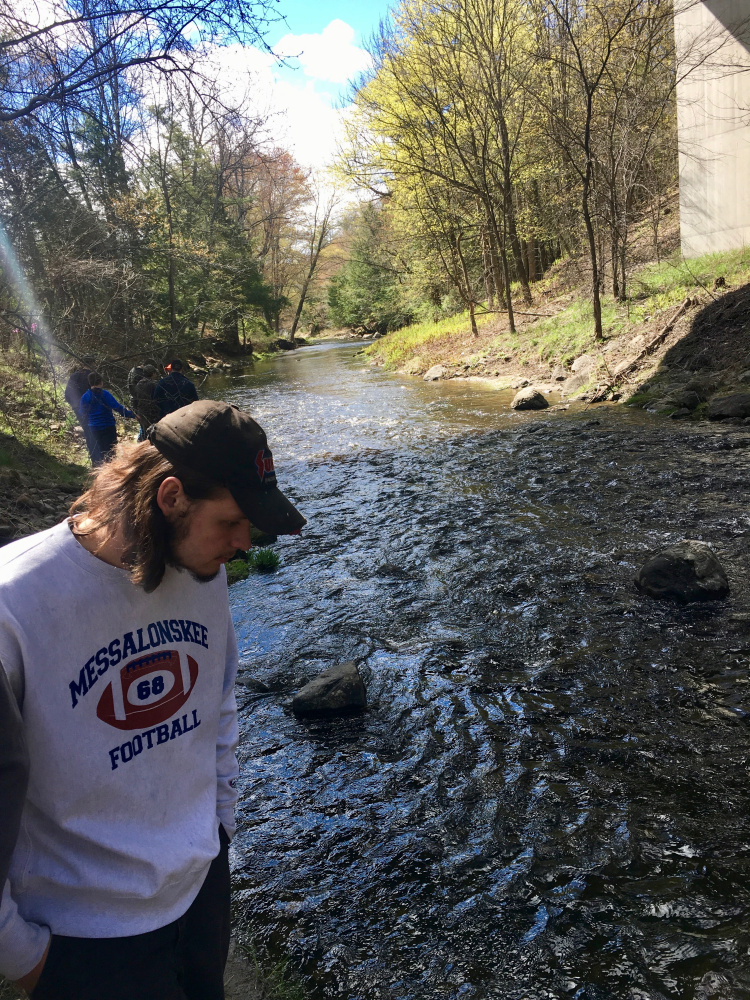Messalonskee High School students released 184 Atlantic salmon in Bond Brook on May 10 to help the declining population of Atlantic salmon in Maine and to educate students about the life cycle of the Atlantic salmon, according to a news release from Nicholas Poulliot, a student at the Messalonskee school.
Matthew Leahey, education and outreach coordinator of the Belgrade Regional Conservation Alliance, gave a presentation about the life cycle of the Atlantic salmon and current issues wild populations are facing.
The students released the salmon as alevin, a more developed fish than eggs. Still very small and young, they are more suited to survive. The life cycle of the Atlantic salmon start out as eggs and develop into alevin. From the alevin stage they develop into fry, then into the parr stage, where they are able to swim up and down the stream but are still developing. From the parr stage, they develop into smolt stage and after the smolt stage they grow into adults, according to the release.
Atlantic salmon migrate down to Maine from Greenland in search of spawning grounds. They come into the Maine streams to reproduce and migrate back through the streams back to the Atlantic Ocean. Atlantic salmon can tolerate freshwater and saltwater. These fish are known as a “sea run fish.”
Peter Kallin, president of the Maine Lakes Society, last year at this time, before the students got to the stream, actually caught a 5-inch Atlantic salmon. He believes that the Atlantic salmon he caught was from year’s past releases, according to the release.
So, why Bond Brook? It’s not the best location under I-95 but for a release it’s actually perfect for Atlantic salmon to thrive in. Colby College students came in and tested the water quality and found it to be better than most places. The water was perfect for the Atlantic salmon to live in.
With the Atlantic salmon numbers declining in Maine, the Messalonskee students are now well-educated about Atlantic salmon and can make an impact on the declining salmon population.
The release was made possible in part by Logan Parker of the Maine Lakes Resource Center. Parker raised the salmon in his office in Belgrade Lakes.
Send questions/comments to the editors.




Success. Please wait for the page to reload. If the page does not reload within 5 seconds, please refresh the page.
Enter your email and password to access comments.
Hi, to comment on stories you must . This profile is in addition to your subscription and website login.
Already have a commenting profile? .
Invalid username/password.
Please check your email to confirm and complete your registration.
Only subscribers are eligible to post comments. Please subscribe or login first for digital access. Here’s why.
Use the form below to reset your password. When you've submitted your account email, we will send an email with a reset code.